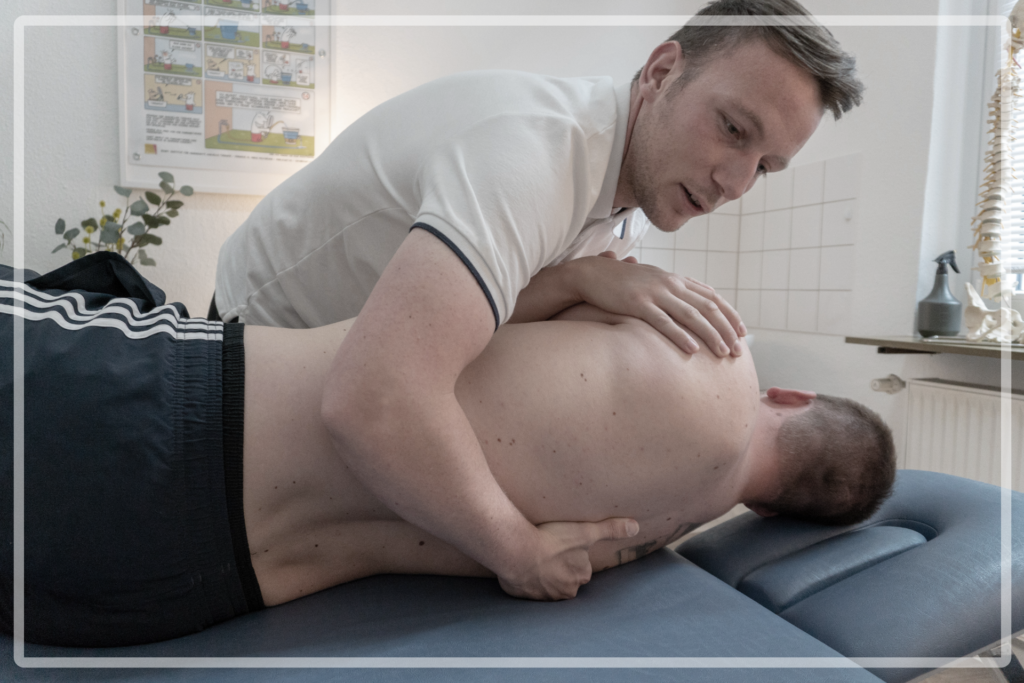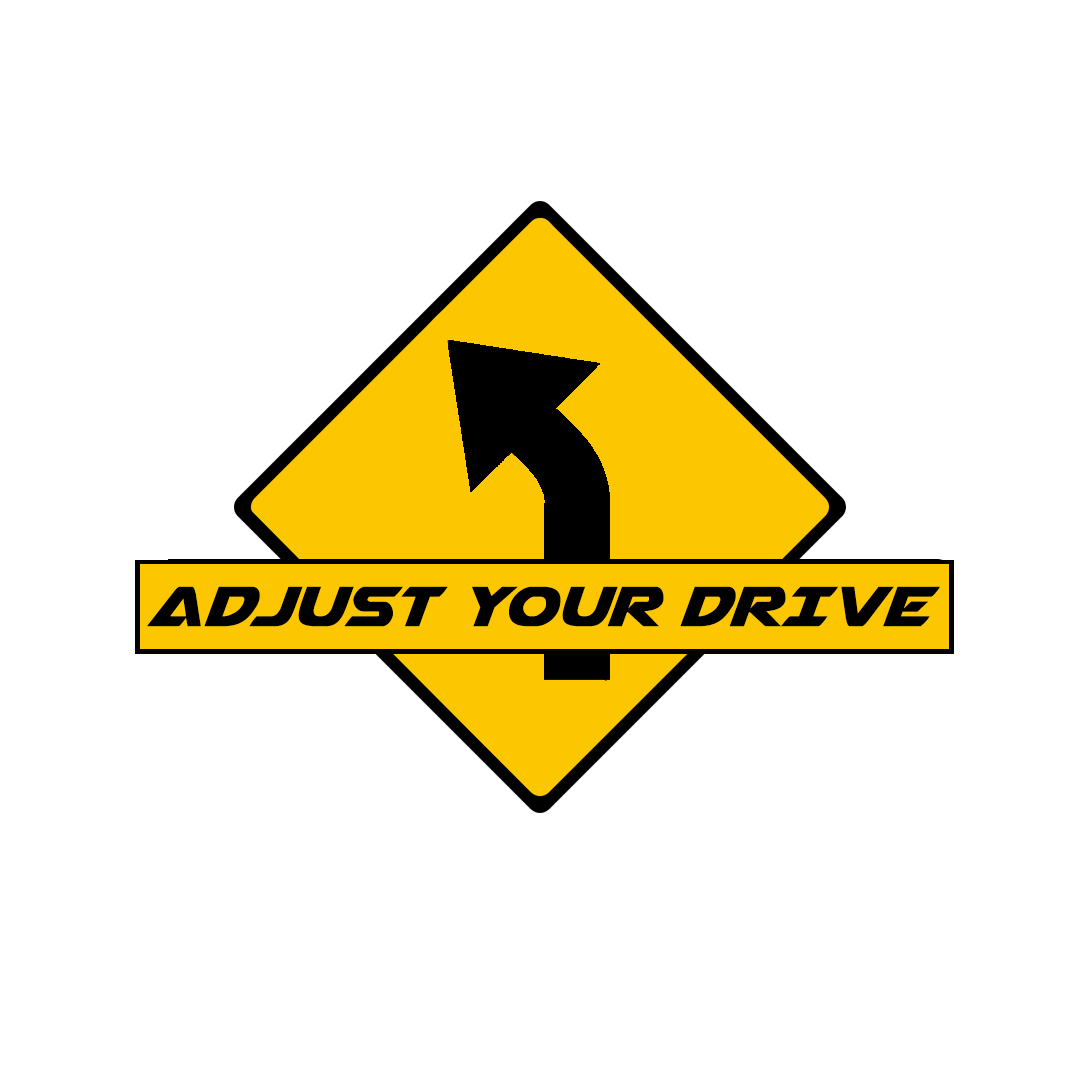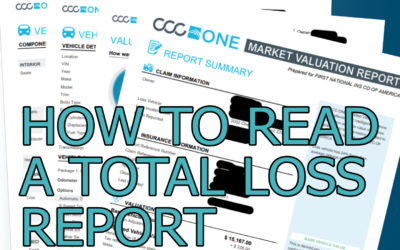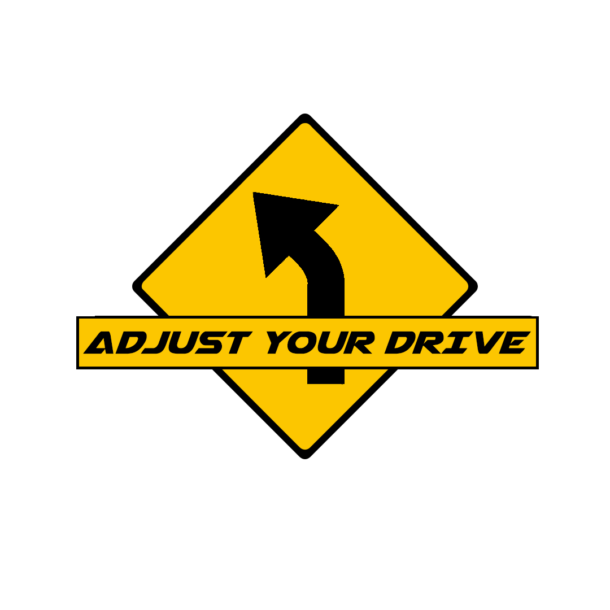Communicating with insurance companies after an accident can be stressful. But it doesn’t have to be a bad experience.
I spent years as an insurance claims adjuster, mostly dealing with auto accidents. Whether you are dealing with your first claim or your fifth, I’ve put together some tips to help make the process go more smoothly.
Some Things to Know
1. Different adjusters have different jobs.
Depending on the type of accident and level of complexity of your claim, you may have a number of different adjusters on your claim. Each one will specialize in a different type of work.
Throughout the claims process you may talk to separate adjusters for liability, vehicle damage, total loss value, diminished value, medical bills, and injury liability. It’s just part of the business. If you are talking to a medical adjuster, they may not be able to answer your question about your total loss.
2. Adjusters are super busy.
Insurance companies are constantly trying to do more work with less people. The workload is always heavy, and the industry trend is that it keeps increasing.
Often, that means the adjuster’s primary goal is to handle your claim in the least amount of time possible. Sometimes this is great. But sometimes it means they don’t take the time to explain every detail. Just keep in mind, they are not trying to make your life harder, they are legitimately busy.
3. Adjusters are bound by policies.
Your insurance policy dictates what your company owes you, and how they go about handling your claim. And company policies dictate how adjusters go about their jobs, sometimes down to the exact wording of something like answering the phone.
Often times there is good reason for it. Insurance companies are highly regulated, and have to be careful to follow legal processes. As financial services companies, they are risk averse. They have teams of corporate lawyers assuring they do things by the book, and don’t expose themselves to lawsuits over fair claims handling.
An adjuster may genuinely sympathize with your situation (as I often did), but not have the option of bending the rules for you. Adjusters have to follow the rules, or risk significant fines, bad faith claims, and even personal liability. The person handling your claim usually doesn’t have the authorization to “just pay” whatever is being asked. In fact….
4. They need to document a reason for everything they do.
Adjusters live and die by the file review. They have to document every action and conversation, and make sure their reasoning holds up to scrutiny. Because their company may go over their notes with a fine-toothed comb to make sure every decision is justified.
Adjusters don’t get bonuses for denying claims or keeping payouts low. Seriously, it doesn’t matter if they pay $10 or $10,000, it matters that they document their reasoning for every dollar. They are charged with paying what the claim is worth, nothing more and nothing less.
So if you reach a point where you think you should be getting paid more, consider the reasoning. Have you explained the need?
One example is rental cars. If you have rental coverage on your policy, your company owes you whatever your policy says. But if you have the at-fault driver’s company paying your rental, every cost has to be justified (and required by state regulations). So if you just ask for a bigger car, your adjuster will probably say they don’t owe you more than basic transportation. But if you explain that you have four teenage kids with friends and sports equipment, and you need a vehicle with the same capacity as your own, you may have a better chance at getting that upgrade.

Tips for Best Communication
5. Know who you’re talking to, and who they represent.
Every time you speak to someone new, write down their contact information. Get their full name , telephone number, email, and the name of the insurance company. Keep a running list along with any other notes.
Know if you’re talking to your own insurance or the other driver’s insurance. You’d be surprised how many calls I handled from confused drivers thinking they called the other company.
If you can’t write it down, ask them to email you their info. That’s something I always did as an adjuster anyway, but not everyone does. It’s easy to send their info with a few clicks, then you always have it in your inbox.
6. Ask the easiest way to reach them.
A good adjuster will ask you what kind of contact you prefer. But if you’re worried about being able to reach them when you have a question, ask what’s easiest.
Many adjusters will say email is preferred. They’re often on a varied work schedule, working around team meetings, department meetings, scheduled phone calls, and handling incoming new claims. Email isn’t always best for something urgent, but it is something they can answer while they’re on a zoom call or eating lunch.
7. Don’t talk to random callers who can’t clearly tell you who they work for.
While we’re talking about calls, let’s talk about scams. They’re everywhere now. I get more calls from scammers than from my own family.
Customers have told me they received unsolicited calls from generic sounding companies that never identified who they represent. They may have found their name and number in public records, because they seem to know there was an accident, but usually not much detail. And if a caller starts referring you to medical providers and lawyers, consider that a big red flag.
Insurance adjusters should be able to identify who they are, which company they work for, and what they are calling about. If you get that phishy feeling, don’t give out any information, and call someone you already know to verify.
8. Don’t come in hot.
A lot of people have the attitude that insurance is a scam, and they’re looking for a fight from the first phone call. But if you come in with your fists up, you’re going to push people away and make it harder for them to help you.
If you come in with an ounce of respect, there’s a good chance it will come back to you later. It’s nice to have the insurance adjuster’s good will on your side. It could be something as small as calling you first in their day because they know the call will be easy. In more major claims with injuries as disputes, it could mean you come off as a credible and sympathetic witness for yourself. A sympathetic witness can add value to a claim.
If you are highly skeptical of insurance companies, I invite you to read more about the claims process. It’s easier to feel comfortable when you know what to expect.
9. Go ahead and ask questions.
Adjusters get many of the same questions every day, but that’s just part of the job. Don’t be shy.
Go ahead and ask for specific information. Asking a question now may save you (and your adjuster) a headache later.
10. Clarify when they use jargon.
Some adjusters get in the habit of talking comp neg, TPCs, ACVs, UMBI, etc. That can save time when talking to other insurance professionals, but it leaves customers confused. If you hear something you don’t understand, it’s okay to clarify.
11. Ditch the euphemisms.
Not the biggest deal, but adjusters deal with car accidents every day. You don’t have to get cute with it. This wasn’t a “love tap” or a “bumper kiss.” This was contact between two vehicles. minimizing language just makes the adjuster’s eyes roll.
Bonus points for all the drivers who say their car has a few scratches, then you see the photos and realize it’s totaled.
12. Just answer the question.
Nothing is worse than asking an essential question and having the customer launch into a story about their sister’s dog that never actually gets to an answer. The last thing anyone wants is to waste time in handling your claim.
Plus, if you are talking with an adverse company, you don’t want to give more information than is needed. It may just complicate the issues, and you could be giving them additional reasons to question your story. A rambling witness could come off as harmless, or could come off as compensating and obscuring.
13. Know your policy ahead of time.
If you are reading this before you have an accident, take the time to read your policy. Familiarize yourself with what you pay for. This will help you know what to expect and what to ask for when you need it. As an adjuster, I hated having to tell people that they didn’t have a coverage they thought they did.
But if you are already dealing with an accident and you haven’t read your policy, see tip #9. Don’t be afraid to ask questions.

Recorded Statements
14. Give a good recorded statement.
Recorded statements are often the primary evidence used by liability adjusters. There’s a few reasons for this. First, it’s the quickest way to determine what happened. In an easy case you can call both drivers the day of the accident, they give statements that agree, and you can move on. With disagreements you can determine what the dispute is, and what evidence would prove liability.
Second, each insurance carrier has a duty to their own policy holder. They must reach their insured and verify coverage before handling any other part of the claim. They typically need a statement from their insured driver before they can decide how to handle any liability.
I will write an entire post on giving a good recorded statement. But the basic idea is to give the adjuster the necessary information to decide liability.
They will likely start by confirming your personal information. Then they will have you describe the details of the accident. They may have you describe the property damage involved, especially if they don’t have photos yet. They are trying to get all the necessary information in a timely manner.
Don’t feel like you have to give a statement off the cuff. Take the time to review the facts first. Feel free to write out notes. Diagram the situation. In fact, adjusters welcome a good drawing of the accident, if you are able to send one. You want to be clear about what you saw and did.
Do you need to give a recorded statement? It depends. With your own insurance carrier, your policy likely requires you to cooperate fully with their investigation. If you want them to cover you, you need to talk to them.
If you’re dealing with the other driver’s insurance adjuster, you may be hesitant. Is it a legal obligation to give them a recorded statement? No. Then again, do they have a legal obligation to pay you what you want, when you want it? No. If you want the other person’s insurance to pay your claim, you may need to give them a statement of some kind.
You can refuse to give the adverse carrier a statement if you want. Or you could send them a written statement. But at the very least, give your own company a statement. That way your company can communicate with the other company, and advocate for you.
15. Don’t lie.
It’s not a good idea. It’s dishonest, and may qualify as insurance fraud.
Adjusters are always tuning their BS detector. They handle hundreds of accidents at a time, they know how things work. There is usually evidence to help them sort through the stories and figure out what happened. Lying just drags things out, and may make things much worse for you.
16. Don’t guess.
This is also a bad idea. Just state the facts as you know them. If you don’t know something, it’s okay to say so. Guessing will just confuse the facts and make your statement less credible when you guess wrong.
17. The police report is not the ultimate truth.
The police report is a piece of evidence. Sometimes it is important. Sometimes it is wrong. Adjusters will often use the information on the report, comparing it with driver statements and physical evidence.
But the police usually don’t witness the accident. They show up afterward, and document what they find. If there is evidence of an infraction, they may write a ticket. Often they don’t make a determination of fault. If they do make a determination, the insurance companies are not required to agree.
18. Insurance companies don’t have a fast track on the police report.
Adjusters don’t automatically get a copy of the report, they have to order it like everyone else. And sometimes that can take a while.
After an accident, gather all the information you can. It may be weeks before the official report is available. If there is an officer at the scene, ask if they can provide an information exchange form, which just lists all the people involved.
If your adjuster asks you basic questions about the claim, please don’t say “It’s on the police report.” They might not have the police report. The report might be missing information, or simply be wrong.

Injuries
19. If you are hurt, see a doctor. If you’re not, don’t.
Some people get hung up on this first step. But you can really treat it like any other injury. If you need to see a doctor, do it. Follow their recommendations. If you want to get checked out to be cautious, that’s okay too.
Don’t think about it in terms of maximizing compensation, just think in terms of getting well. Adjusters are always on the lookout for fishy patterns. If you try to run up bills unnecessarily, you are setting yourself up for conflict and (metaphorical) headaches.
20. Know where your bills are going.
Typically your medical bills will go to your own car insurance (if you have medical coverage), or your health insurance. These are first party coverages, meaning they cover you and pay your bills directly.
You cannot just send your bills to the company you think is at fault. Injury liability claims are paid as settlements, typically after all your medical treatment is done. Bills sent to someone else’s insurance will usually go unpaid.
21. You don’t have to settle immediately.
Injury claims are separate from property damage. You don’t have to settle your injury to have your vehicle paid for. Injury claims can stay open as long as your state statute of limitations allows, usually 2-3 years.
Some adjusters may offer a little money as an initial settlement to wrap up the claim quickly. While these early settlements may have their place for some people, I’m not a fan. It’s hard to determine the value of the claim without reviewing your medical records and understanding the full extent of your injuries.
A good evaluation accounts for all necessary medical treatment, any wage loss, and fair compensation for pain and suffering. It also helps the adjuster to know how your injuries affected your daily life activities, as well as any special impacts, such as a cancelled vacation.
Once you do discuss settlement, you don’t have to take the first offer. In fact, you should take some time to think on it. Determine what you think is fair. Discuss it with the adjuster, and explain your reasoning. Remember tip #4, they need to document their justification for paying. Make it easy to justify.

Lawyers
22. Before you hire a lawyer, know what they can/will do for you, and what they can’t/won’t.
Lawyers are mostly interested in injury claims. That’s where they can make money (typically a percentage of your settlement). Often they will let you handle the property damage on your own. It’s just not worth their time. That means you will still need to deal with an adjuster.
If you do want legal advice, you are always free to talk to an attorney. Most firms that handle personal injury cases will provide a free consultation.
If you have minor to moderate injuries and an uncomplicated case, you may be able to get fair compensation on your own. If you have serious injuries, a complicated case, or need someone to manage the bills and finances, then an experienced car accident attorney could be a good investment. Just be aware of the costs involved, and you what you will get out of it.
23. If you are legally represented, the adjuster can’t talk to you without your attorney’s permission.
If you are trying to get a quick response from an insurance adjuster, hiring a lawyer is not a good way to go about it. Once you sign with an attorney, they need to get a letter of representation to all parties involved. Then they need to provide specific instructions on what you can discuss. Most of the communication will go through their office.
24. Lawyer websites may tell you not to discuss details of the accident.
Here’s why that may be a bad idea. Companies have a duty to investigate a car accident claim. At the very least, your own company will need a detailed description from you. That’s how they determine your coverage, and who they can pursue to recover the expenses.
If you don’t have collision coverage, you would need to go through the other driver’s insurance company. They cannot pay you anything until they decide their driver is at fault. And they’re going need to talk to you before they do that. If you don’t provide a statement, you may delay the handling of your own claim.
Remember, if you are hesitant, you can always offer to send a written statement, or seek specific legal advice before giving a statement.
25. Lawyer websites may tell you not to discuss your injuries.
This is more sound advice, at least up front. Immediately after an accident it’s hard to know the full extent of your injuries. You should let the adjuster know if you are hurt. This lets them keep track of the injury exposure, and set proper reserves. This also makes them aware if there are potential issues with coverage limits (especially with multiple injury accidents), which then makes you aware.
But you don’t need to go into details with the other driver’s insurance company until you are ready. You or your attorney will typically provide a demand letter outlining your case and asking for settlement. From there you can have an informed discussion and agree on a fair settlement.






0 Comments